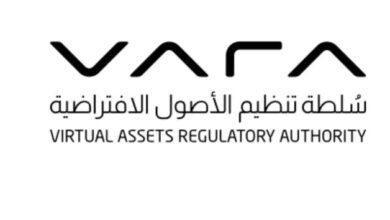Elevating Effectiveness: UAE and IMF Collaborate to Forge a Robust Regulatory Framework for Virtual Assets

In a collaborative effort, the International Monetary Fund (IMF) partnered with the UAE Executive Office of Anti-Money Laundering and Counter Terrorism Financing (EO AMLCTF) to address the challenges associated with virtual assets. This recent initiative, a joint endeavor between AML/CFT supervisors from 15 countries, underscores a shared commitment to strengthen the regulatory landscape for virtual assets (VAs) and virtual asset service providers (VASPs).
Representatives from Australia, the Bahamas, Bahrain, Saudi Arabia, the United Kingdom, the UAE, and the United Nations Office on Drugs and Crime and more participated in a three-day workshop to explore a draft supervisory methodology designed by IMF staff. This methodology, part of the IMF’s capacity development program, aims to enhance the risk-based supervision of VAs and VASPs.
Hamid Al Zaabi, Director-General of the EO AMLCTF, emphasized that the UAE’s commitment to hosting such a workshop underscores its dedication to developing a robust regulatory framework for virtual assets. He stated, “The UAE aims to elevate the effectiveness of its regulatory framework, attracting innovative firms while thwarting illicit actors seeking to exploit the global financial system.” The collaboration with the IMF, he added, provides supervisory authorities worldwide an opportunity to contribute to the design process of this crucial methodology.
Chady El Khoury, Deputy-Division Chief of the Financial Integrity Group at the IMF, highlighted the urgency for countries to address money laundering and terrorist financing risks linked to virtual assets. Participants reached a consensus on the need for collective action and collaboration.
The workshop provided a platform for open discussions, allowing participants to share insights, best practices, and proposed solutions. The collaboration acknowledged challenges such as capacity limitations for supervisory agencies, data collection gaps, and the importance of stronger cooperation among AML/CFT supervisory agencies.
As the methodology undergoes refinement based on feedback, it is poised to become an essential component of the IMF’s Capacity Development toolkit, set for distribution to countries by mid-2025. This collaborative effort is made possible through a donor-supported trust fund, with contributions from several nations and generous support from the UAE in hosting this pivotal event.





